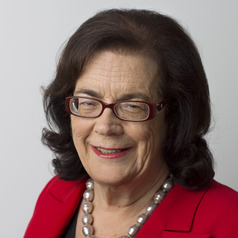ASIO is investigating a number of Australians in a nationalist and racist extremist network who are using an encrypted chat platform to communicate with offshore extremists.
In a Wednesday speech to the National Press Club, ASIO chief Mike Burgess will say technology companies should do more to work with security agencies to ensure access to encrypted messages, where that access is lawful.
Burgess stresses in his speech, extracts of which have been released ahead of delivery, that he is not asking for new laws, powers or resources, or wanting a cessation of end-to-end encryption.
“I am not asking the government to do anything. I am asking the tech companies to do more. I’m asking them to give effect to our existing powers and to uphold existing laws.
"Without their help in very limited and strictly controlled circumstances, encryption is unaccountable. In effect, unaccountable encryption is like building a safe room for terrorists and spies, a secure place where they can plot and plan.
"Imagine if there was a section of a city where violent extremists could gather with privacy and impunity. Imagine if they used this safe space to discuss terrorism and sabotage, and vilify Muslims, Jews, people of colour and the LGBTQIA+ community. And imagine if the security service and police were stopped from entering that part of town to investigate and respond.”
This is not hypothetical, Burgess says, highlighting the network ASIO is probing.
Burgess says the chatroom is encrypted. ASIO is devoting significant resources to monitor the Australians involved but is impeded in its ability to investigate.
“Having lawful and targeted access to extremist communications would be much more effective and efficient. It would give us real time visibility of their activities.”
Burgess says the technology companies are expanding their use of end-to-end encryption.
“I believe technology should not be above the rule of law […] Privacy is important but not absolute.”
“If the threat, evidence, safeguards and oversight are strong enough for us to obtain a warrant, then they should be strong enough for the companies to help us give effect to that warrant. To make encryption accountable.”
Burgess also warns AI is likely to boost foreign interference, especially disinformation and radicalisation.
“We are aware of offshore extremists already asking a commercially available AI program for advice on building weapons and attack planning,” he says.
“The internet is [already] […] the world’s most potent incubator of extremism. AI is likely to make radicalisation easier and faster.”
Burgess’s warnings come as the government is in a fight with X’s chief Elon Musk over the eSafety Commissioner’s order X take down the footage of the stabbing of the bishop at a church in the Sydney suburb of Wakeley last week.



 Elon Musk’s SpaceX Acquires xAI in Historic Deal Uniting Space and Artificial Intelligence
Elon Musk’s SpaceX Acquires xAI in Historic Deal Uniting Space and Artificial Intelligence  JPMorgan Lifts Gold Price Forecast to $6,300 by End-2026 on Strong Central Bank and Investor Demand
JPMorgan Lifts Gold Price Forecast to $6,300 by End-2026 on Strong Central Bank and Investor Demand  SoftBank Shares Slide After Arm Earnings Miss Fuels Tech Stock Sell-Off
SoftBank Shares Slide After Arm Earnings Miss Fuels Tech Stock Sell-Off  Alphabet’s Massive AI Spending Surge Signals Confidence in Google’s Growth Engine
Alphabet’s Massive AI Spending Surge Signals Confidence in Google’s Growth Engine  Instagram Outage Disrupts Thousands of U.S. Users
Instagram Outage Disrupts Thousands of U.S. Users  Nvidia Nears $20 Billion OpenAI Investment as AI Funding Race Intensifies
Nvidia Nears $20 Billion OpenAI Investment as AI Funding Race Intensifies  Jensen Huang Urges Taiwan Suppliers to Boost AI Chip Production Amid Surging Demand
Jensen Huang Urges Taiwan Suppliers to Boost AI Chip Production Amid Surging Demand  Elon Musk’s Empire: SpaceX, Tesla, and xAI Merger Talks Spark Investor Debate
Elon Musk’s Empire: SpaceX, Tesla, and xAI Merger Talks Spark Investor Debate  Amazon Stock Rebounds After Earnings as $200B Capex Plan Sparks AI Spending Debate
Amazon Stock Rebounds After Earnings as $200B Capex Plan Sparks AI Spending Debate  Baidu Approves $5 Billion Share Buyback and Plans First-Ever Dividend in 2026
Baidu Approves $5 Billion Share Buyback and Plans First-Ever Dividend in 2026  Anthropic Eyes $350 Billion Valuation as AI Funding and Share Sale Accelerate
Anthropic Eyes $350 Billion Valuation as AI Funding and Share Sale Accelerate 





























